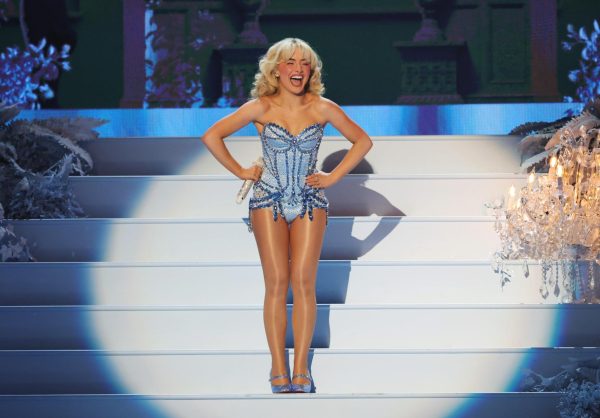Societal expectations of leadership excludes introverts, embraces extroverts
The world is loud. And introverts? That’s not particularly our cup of tea. However, in a world where extroverts are praised for their bravery, expression, and outgoing personalities, this leaves little room for acknowledgement of the power of introverts. We are led to believe that the only way to be a leader is to be an extrovert. This is simply not true. Extroverts are not inherently better leaders, and introverts should not be excluded from the conversation surrounding leadership.
First, it’s important to understand that there is a difference between being an introvert and being shy. As renowned American author Susan Cain explained in her Ted Talk called “The power of introverts,” shyness is about fear of social judgment and introversion is about feeling the most comfortable and capable in quieter, more low-key environments.
Conversely, extroverts crave large amounts of stimulation in order to thrive socially or intellectually. According to Cain, the key to maximizing one’s internal abilities is to immerse themself in an environment with the most comfortable level of stimulation. This means something different for every person, yet the preferences of extroverts are still favored and expected in the realm of leadership.
Our world is composed of both introverts and extroverts. According to a 2020 study by the Myers-Briggs Company, 56.8 percent of people around the world prefer introversion. Despite this, just four percent of all managers and executives display introverted personalities, according to a study by the Harvard Business Review.
Although there are more types of leaders than just managers and executives, this statistic reflects a greater issue in today’s leadership: the expectation of extroversion in leadership positions either discourages introverts from holding those positions or forces them to conform to situations in which they truly don’t thrive.
Due to the social norm of extroversion, introverts often feel the need to “play up” their performance to fit the extroverted expectations of being commanding, personable, and overzealous. According to the Myer-Briggs study, nine out of ten people feel pressured to behave in an extroverted way. Leadership should not be molded to extroverts’ preferences, and introverts should not feel the need to “put on a show” each time they enter a leadership position.
Ask yourself: what is the first thing that comes to mind when you hear the word “leader?” Is it your high school class president yelling over the buzz of the crowd at a football game? Or is it the captain of your soccer team, jumping enthusiastically while leading the team cheer before a game? Or, perhaps, is it a local activist leading a protest against gun violence with a megaphone?
People often think of an extrovert when they think of a leader. This narrative needs to change.
Having held leadership positions throughout the years, most people would probably assume that my personality leans more towards extroversion. This is, in fact, not the case. I often feel drained after socializing all day at school, and I prefer to work alone when given the opportunity. Does this make me shy or antisocial? Perhaps a smidge, but the point is that being an introvert does not make me any less of a leader than my extroverted classmates.
Introvert leaders can be just as successful as extroverts. What’s one thing that Bill Gates, Ruth Bader Ginsburg, Abraham Lincoln, and Greta Thunberg all have in common? They’re all extremely successful leaders, and they’re also introverts.
Bill Gates considers the impact of his advancements by pursuing philanthropic causes. Ruth Bader Ginsburg fiercely advocated for gender equality with her refined logical skills and experience as a Supreme Court justice. Abraham Lincoln possessed dignity and strength in the written word. Greta Thunberg became the leader of a new wave of environmental activism among young people, portraying skills of patience and persistence. The world clearly needs introverted leaders, as they are representative of half of the population and contribute necessary skills to work toward any sort of change in the world.
Rather than discouraging them with the daunting expectations of being loud, charismatic, and extroverted, introverted leaders should be appreciated for their positive traits and welcomed to leadership settings. Introverts are great listeners, analysts, and they use reason to solve problems before jumping to solutions. They use their voice wisely, and people listen when they speak.
Being an extrovert does not inherently make someone a more successful leader. A good leader is someone who has integrity, honesty, humility, and lifts their teammates up. The title of a “leader” should not be reserved for extroverts, and should be welcoming of both introverts and extroverts.

Samantha is a senior in her third year in journalism. She loves little old bookstores, the smell of almond extract, and rewatching Stranger Things. When...

Fiona Swan, is a junior at High School 1327 and this will be her first year in Advanced Journalism. She spends most of her free time surfing, discovering...








Marisa Green • May 1, 2021 at 5:23 PM
Fantastic article! I loved Susan Cain’s book.